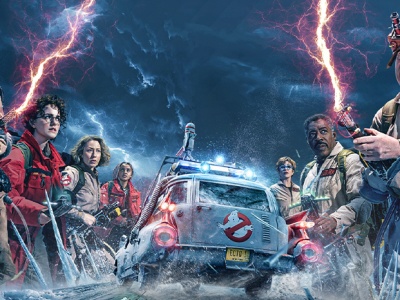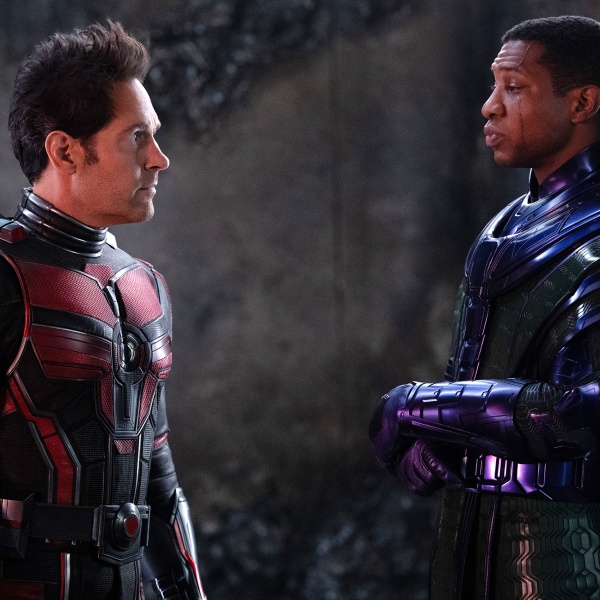The Book of Genesis is the first book of the Christian Old Testament and details how God created the world and everything in it. God creates the first man and woman and appoints man as his regent (and so began gender inequality), man displeases God and He destroys the Earth with a flood.
In 1984 a young filmmaker named James Cameron created a world of his own with The Terminator, and with it, changed the face of science fiction filmmaking forever. Cameron’s Terminator was smart and lean, it was a film of big ideas shot on a small budget with a stripped down aesthetic that looked like nothing else in cinemas of the day. Its sequel, Terminator 2: Judgement Day, built on the foundation of the original and is widely considered to be the seminal action sci-fi film. With T2 Cameron, like God before him, decided to close the loop on his creation and move on to other worlds with an emotionally powerful and logical denouement. Flash forward to 2015 and the release of the fifth instalment in the Terminator franchise, an entry which is so poorly made it may have some feeling thankful God never had to give his precious creations up to capitalism and copyright laws.
Terminator Genisys is Paramount and Annapurna Pictures own Genesis on the Terminator series, taking the original film and all its IPs and rebooting them for a new generation. The idea of the ‘soft reboot’ is one which seems to have taken hold in the minds of Hollywood studio executives – perhaps thanks to the success of 2009’s Star Trek – right in the amygdala next to a piece of grey matter labelled ‘comic book movies’, two of which served as trailers for the feature showing of Terminator Genisys; an oxymoronic title for a film which serves to add nothing to the lore from which it was spawned. Make no mistake, in spite of its namesake, Terminator:Genisys is the most unoriginal film since the 1998 almost shot-for-shot remake of Alfred Hitchcock’s Psycho, and the weakest of the film series to date.
Arnold Schwarzenegger’s return as the eponymous cyborg was a much hyped carrot dangled in the face of fans, but ultimately it is not the treat fans had hoped for; Schwarzenegger is almost unrecognisable in the role which made his career 30 years ago and without the steady hand of a director like Cameron, Schwarzenegger’s performance is scattershot and wooden in all the wrong ways. In Schwarzenegger’s defence, the script is really quite terrible, calling for his T-800 to be nothing more than a prop; running interference by slamming one robot or another through dry wall and concrete for the nth time, or making one more bad joke which fails to deliver due to director Alan Taylor and the screenwriters’ lack of character development. What made the jokes of T2 so effective was the relationship between Edward Furlong’s John Connor and the T-800, the way it grew and developed into a proxy father/son relationship with the absence of the already dead Kyle Reese, Cameron spent time making the relationship believable and touching. Genisys fails to show us why the jokes are appropriate given the stakes of the film, it fails to connect its audience with the characters beyond a superficial level, and the gags ultimately fall flat on their synthetic faces because they have no emotional undercurrent to them.
Another character who is completely unrecognisable is Emilia Clarke’s Sarah Connor. Linda Hamilton’s portrayal of Connor in the original films was an acute character study of a woman pushed to the limits of her sanity and beyond by forces outside of her control. The films remain Hamilton’s strongest performances to date and Hamilton made the character her own, so to reboot and recast Clarke in the role was a huge ask for the young actor famous for her role as another strong female in Game of Thrones. Clarke’s portrayal is like watching a marionette try to recreate the movements of a human; no matter how posable and manoeuvrable the puppet, something just feels wrong. Where Hamilton was able to evoke the strength and iron will of her character, Clarke seems to rely on foul language and mutterings about ‘fate’ to show she is a badass. Hamilton looked every bit the hardened warrior in T2, here Clarke just isn’t believable as the rebooted Connor who has lived her life hunted by robotic assassins, she has no hard edge, and her abilities as an actor show fissures when scrutinised so closely for the film’s two hour runtime.
Everything about Terminator:Genisys feels like an inferior copy of the original, like a T-1000 that for all its bells and whistles just can’t seem to outdo the trusty old T-800. The cast, score and script are cheap knock-offs of those found in Cameron’s brilliant films and while the old effects of the original films may have aged, the slap of new paint given to the infamous homicidal automatons looks great in parts, but fake in others, forcing the audience to notice the shiny toys and pulling them out of the film’s storytelling experience.
Just like Adam, Terminator: Genisys fails to live up to the expectations set by its creator, every part of the film fails to capture the magic and ingenuity of the original films. While the prospect of Cameron ever returning to the franchise which made his name is unrealistic, it would be a much better future for all of us if the great films of yesterday weren’t rehashed for the audiences of tomorrow but reexamined and enjoyed by those who have yet to experience their magic.
If you want a more detailed rundown of the plot and other performances head over and check out Dylan’s exhaustive and excellent review here.












